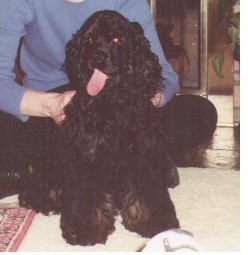The weather this summer has not been that bad. Really. It could have been a lot worse. I still am overjoyed that the cooler temperatures and brisker breezes have finally arrived in southeast Michigan. I went to Frankenmuth yesterday with some friends, and it was almost perfect. I'm planning to go back, because as great as it was yesterday, it would've been even better if the leaves had turned, but we haven't had enough cold yet - I think that's what makes the leaves change.
Anyway, if you're ever in Michigan, Frankenmuth is a must-see stop on your travels. It's an interesting village, and while the tourist attractions have attempted to swallow the original place, I found this bit of history from the Frankenmuth.org website (yes, they have a website! - this is an edited excerpt):
Wilhelm Loehe, pastor of a country church in Neuendettelsau, Mittelfranken, in the Kingdom of Bavaria, organized a mission society, which is still in operation today, to train teachers and pastors for work in the United States. His idea was an experiment to send a mission congregation with a dual purpose: to give spiritual comfort to the German pioneers in the Midwest, specifically the Saginaw Valley, and to show the native Indians in the area "Wie gut und schön es ist Jesus zu sehen" (how good and wonderful it is to see Jesus).
The pastor of a Swabian settlement in Michigan recommended a location along the Cass River in Michigan, and Loehe approved it, naming it "Frankenmuth," from the German word "Franken" (representing the Province of Franconia in the Kingdom of Bavaria), and the German word "Muth" (meaning courage). The city name Frankenmuth means "courage of the Franconians."
Thirteen people, mostly farmers from the area around Neuendettelsau (eight were from Rosstal) volunteered to form the colony. Loehe selected Pastor August Craemer, a graduate of Erlangen University who was, in 1844, teaching German at Oxford, England, to train to be the mission colony's pastor and leader.
Loehe also started three other German colonies in Michigan. His purpose was not to start another mission colony, but to cluster German Lutherans together in Michigan.
Farms were set up in long, narrow strips along one road so that all the houses could be built close to each other, more like a German "dorf." A fourth colony, started in 1850, had a different purpose: to help poor and/or unmarried Germans to lead new and better lives.
Immigration continued through the end of the 19th century as friends and relatives of settlers joined them in Michigan. Many were craftsmen and businessmen who continued their same trades here. Frankenmuth established a reputation for its flour, saw and woolen mills. They also produced beer, cheese, and sausage. A half dozen hotels served travelers. Agricultural and self-sustaining businesses were the norm.
Bronner's CHRISTmas Wonderland open in 1945. If you've never been to (or heard of) Bronner's, it is a destination adventure in itself - it's always Christmas there, no matter what day of the year it is, and their selection of Christmas ornaments and other things is remarkable.
After World War II, the development of interstate highways led the community into the visitor industry and the town capitalized its assets. In 1958/59, the Zehnder family redecorated the Fischer Hotel in an "Alpine-style" architecture, renaming it the Frankenmuth Bavarian Inn. The Bavarian Inn Grand Opening was held in 1959, and the celebration was later developed into annual Bavarian Festival.
The expansion and development of the area into a Michigan tourist destination has continued apace - I was kind of surprised at how commercial much of the shopping outside the city proper has become even since I was there last, but it was still a lot of fun to go to the shops, and they seem to find things I haven't seen anywhere else.
Good way to open Fall!! :)
Sunday, September 24, 2006
Subscribe to:
Post Comments (Atom)




No comments:
Post a Comment